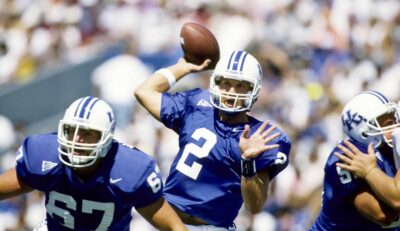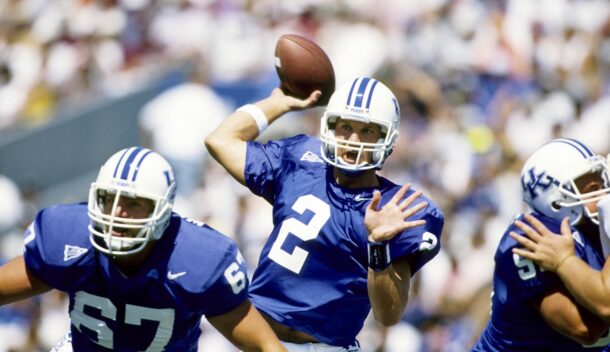In its attempt to explain how Missouri is different than North Carolina, NCAA may have undermined future investigations
Big news out of Columbia on Thursday as the NCAA announced it will be punishing Missouri after finding 12 student-athletes were given illegal assistance with their academics by a single tutor over a one year span.
The punishment from the NCAA was harsh, including a one-year postseason ban for the football program, three years of probation for the school’s athletic programs, recruiting restrictions and wins and stats being removed from Missouri and NCAA record books.
As we continue to comb through the NCAA’s 29-page response to its decision to ban Missouri’s football, one thing stands out from the NCAA’s findings: this all sounds very familiar to North Carolina’s issues with the NCAA.
Of course, North Carolina did not face any punishment once the NCAA finally ruled on the case in 2017 after fake courses were taken and top marks given for academic work that resulted from fine work such as copying and pasting. It should be noted that North Carolina lawyered up against the NCAA and never fully cooperated with the investigation against the university.
So how is this case at Missouri any different? According to the NCAA’s findings released on Thursday, it would appear Missouri’s cooperation is being held against the school. Here is an excerpt from the 29-page report:
The conduct at issue in this case is also distinguishable from the COI’s decision in the University of North Carolina at Chapel Hill (2017). Among other differences, UNC stood by the courses and the grades it awarded student-athletes. In support of that position, UNC asserted that although courses were created and graded by an office secretary, student-athletes completed their own work. Here, by contrast, Missouri acknowledged that the tutor completed student-athletes’ work and, in most instances, this conduct violated its honor code.
North Carolina honored fake classes and grades and get no punishment, while Missouri cooperates and gets punished? That’s likely going to be a tough pill for Mizzou fans to stomach moving forward.
This could potentially lead to schools refusing to cooperate with future NCAA investigations. That’s something Nicole Auerbach of The Athletic brought up to NCAA Chief Hearing Officer David Roberts. Incredibly, he seems to convey much the same:
https://twitter.com/NicoleAuerbach/status/1091038776011509762
https://twitter.com/NicoleAuerbach/status/1091039453118951425
Roberts can hope all he wants but the NCAA appears to have set a dangerous precedent moving forward following this Missouri ruling. Coming clean could be far more costly than fighting allegations to the bitter end moving forward.
A graduate of the University of Tennessee, Michael Wayne Bratton oversees the news coverage for Saturday Down South. Michael previously worked for FOX Sports and NFL.com







